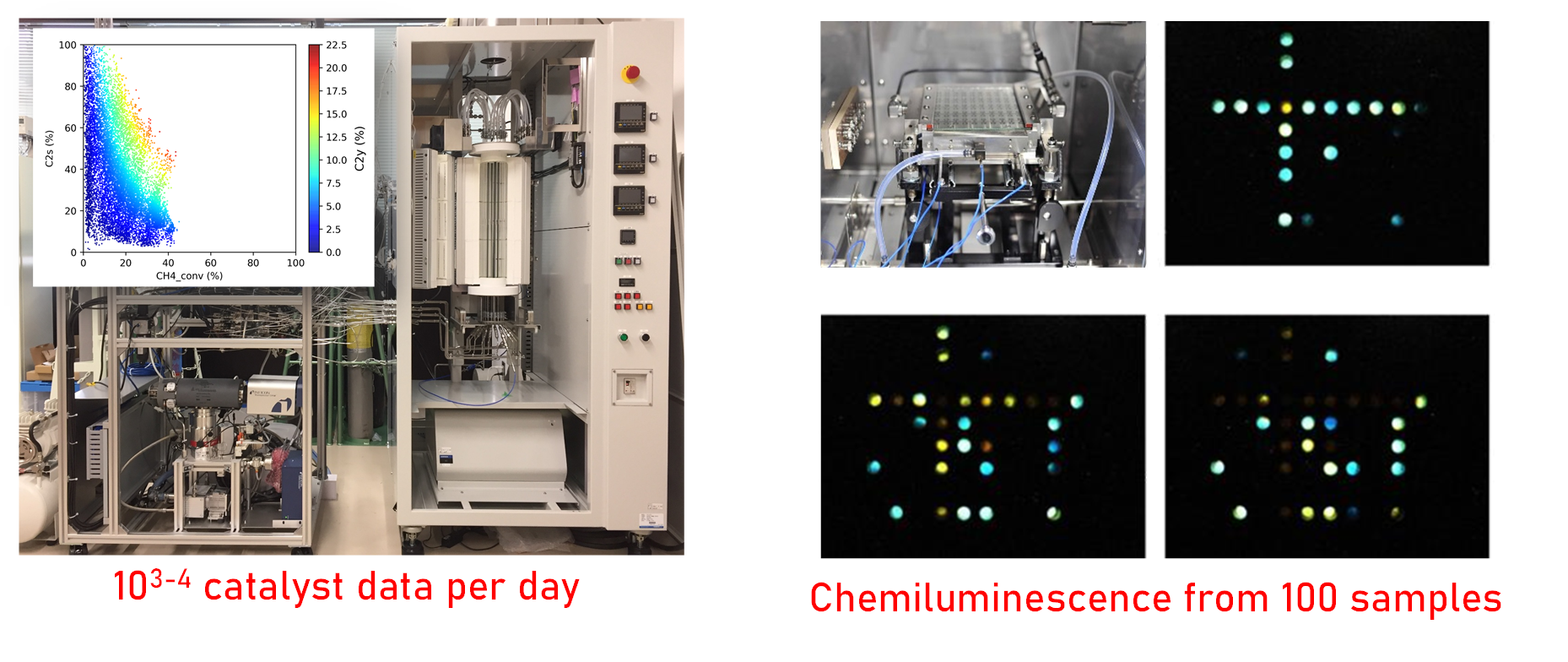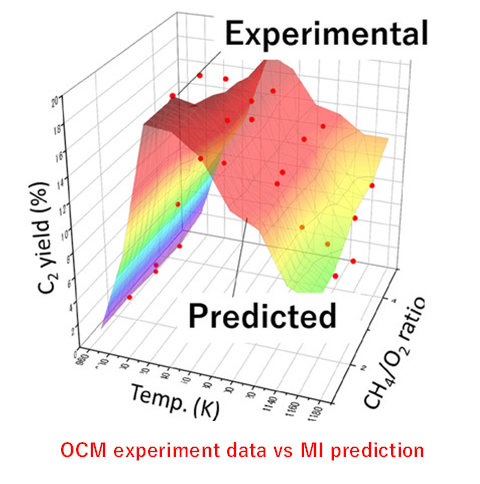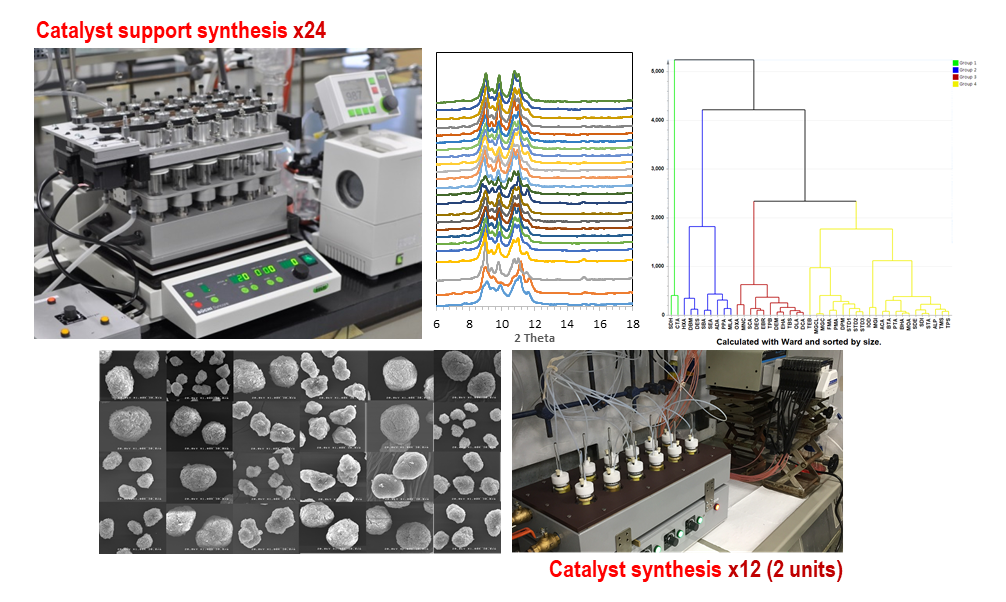
A prerequisite for informatics is the presence of a dataset sufficient in size, distribution, and consistency. One fundamental problem of materials informatics (MI) is the lack of such a dataset. For instance, data accumulated in the past reflect research interests and protocols of the corresponding ages and/or individual researchers: Unrestricted correction of data results in an unevenly distributed and inconsistent dataset. Contrary, restricted collection limits the size and narrows the distribution. Besides, explanatory variables (called descriptors) must be carefully chosen in order to properly extract trends hidden in experimental data. In the International Excellent Core for Materials Informatics, five laboratories collaboratively implement the following research items that cover from upstream to downstream of MI.
Although one of the purposes of MI is to enable prediction and knowledge extraction in a limited data situation, it is also true that the limitation of the data largely restricts the research feasibility and the outcome. In this light, high-throughput experimentation is powerful for dramatically reducing the cost of acquiring data.Taniike Laboratory develops a variety of instruments and protocols for high-throughput experimentation. e.g.
・Fully automated screening of catalysts at a series of programmed reaction conditions
・Chemiluminescence imaging for in-situ evaluation of polymer durability and catalyst activity in oxidation
・Various parallel synthesizers
Based on the developed instruments and protocols, materials big data are generated in a short time of period.

Supported by a strong basis on catalysis and relevant technologies, Nishimura laboratory focuses on the implementation of MI-driven catalysis research. Conventional but well-established research methodologies in catalysis are combined with data science in order to fulfill key targets such as optimization of process conditions, reaction mapping, exploration of new catalysts, and so on. Furthermore, the laboratory transfers knowledge obtained from MI and HTE into practical materials research and development.

Heterogeneous catalysts for olefin polymerization are regarded as one of the most challenging catalysts due to the use of air-sensitive chemicals and the necessity of morphological control in their synthesis. Such elaborate and delicate processes have made the acquisition of systematic data difficult. Chammingkwan laboratory develops instruments and protocols for efficient and accurate synthesis of engineered solid supports and catalysts. Catalyst libraries and data-driven approaches uncover the structure-performance relationship for rational catalyst development.
